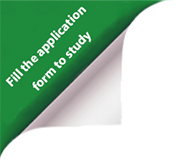Helping another individual of one's species who is in danger is considered a complex form of prosocial behaviour. In the animal kingdom, so-called rescue behaviour manifests itself in various ways, but in order for a certain behaviour to be classified as rescue, it must meet several conditions. The victim is in a situation where there is an imminent danger of injury or death. The rescuer helps the victim even at the cost of putting himself at risk, and his action is proportional to the victim's situation. Last but not least, it must be a selfless act, i.e., one from which the rescuer has no direct benefit.
Under laboratory conditions, rescue behaviour was found in rats and mice, which purposefully opened doors to their cage mates when trapped in a water tank. In the wild, however, rescue behaviour is a relatively rarely observed phenomenon. It has been documented, for example, in several species of ants that have freed their conspecifics trapped in a spider web. Rescue behaviour has also been observed in primates. Chimpanzees were seen freeing another chimpanzee trapped in a poacher’s snare. Other observational evidence includes moustached tamarins attacking a snake, which assaulted a member of their group. The form of rescue behaviour observed in African elephants is also remarkable – one individual removed a tranquilizing dart from the body of his mate, thus saving him from being captured by humans.
A unique discovery was made by scientists from the Department of Game Management and Wildlife Biology of the Faculty of Forestry and Wood Sciences, who for the very first time documented rescue behaviour in the wild boar (Sus scrofa). It was not an easy task – wild boar is a species with nocturnal activity, which complicates research into its social behaviour. In a series of images from a night-vision camera, the researchers first managed to capture two juveniles who were caught in a cage trap with bait. Shortly afterwards, a group of other pigs arrived at the crime scene, and they dispersed around the cage. Other images captured how an adult female tried several times to remove a log blocking the entrance to the trap. In the end, she succeeded and freed the imprisoned individuals from the cage. Given the situation of the trapped boars and the rescuer's reaction, her act can actually be classified as rescue behaviour.
However, the rescuer's motive remains unknown. A possible explanation is that her actions were motivated by empathy. This feeling is not the prerogative of humankind alone. The ability to empathize with others was also observed, for example, in domestic pigs who are closely related to the wild ones. They exhibited signs of stress when looking at the suffering conspecifics. It is therefore likely that this trait is not foreign to wild pigs either. Moreover, it cannot be ruled out that the female acted from experience, as traps of this type had been placed on the same area for research in the past. However, as this is the first and so far the only observation of the rescue phenomenon in wild pigs, it would be premature to draw more extensive conclusions. But it seems that even wild pigs know very well that a friend in need is a friend indeed…
Mgr. Michaela Másílková, Ph.D.
Michaela Másílková graduated in Zoology with a specialization in Ethology at the Faculty of Science of the University of South Bohemia in České Budějovice, where she researched personality in primates. Since March 2020, she has been employed at the Faculty of Forestry and Wood Sciences by the EVA 4.0 project as a scientist and researcher and examines individual differences in behaviour and social behaviour in wild pigs and hunting dogs.
Author: Dagmar Zádrapová

